Looking back at last year’s preview, it’s interesting to note the hits, misses and no-shows from the films previewed there. Lucy and Maleficent performed above expectations, although both are still almost certain to be out-grossed handily before long (if not already!), by the third Hunger Games movie. On the other hand, Kite ended up basically going straight to video, and Resident Evil 6 has now been pushed all the way back to 2016, due to Milla Jovovich becoming pregnant again. So, take all of what follows with an appropriate pinch of “card subject to change,” wildly variable release dates and no guarantees, considering in some cases I’m going off a one-sentence synopsis on the IMDb.
 Barely Lethal (TBA)
Barely Lethal (TBA)
Still no sign of this one, so let’s just copy paste from 2014! “A 16-year-old international assassin yearning for a “normal” adolescence fakes her own death and enrolls as a senior in a suburban high school. She quickly learns that being popular can be more painful than getting water-boarded.” I’m not sure who came up with that synopsis, but they likely deserve some first-hand experience of waterboarding. Cute title, even if it does feel rather too close to the lacklustre school plot from Kick-Ass 2. Chris will probably be up for this, since she thoroughly enjoyed director Kyle Newman’s Fanboys. Hailee Steinfeld plays the hit-teenager, Megan, and Jessica Alba is former employer Victoria Knox, who smells a rat and heads in pursuit. Samuel L. Jackson and Sophie Turner (Sansa Stark from Game of Thrones) are also involved.
Crouching Tiger, Hidden Dragon: The Green Legend (August 28)
Another hangover from last year, we’re still eagerly anticipating this due to the directorial presence of Yuen Wo-Ping, and those in front of the cameras, Michelle Yeoh and Donnie Yen. The martial arts will kick ass, there seems little doubt. But will it pack the same emotional wallop of the original? There has been a twist to the distribution too, with the film being released simultaneously in cinemas and on Netflix (who are co-producers on the $60 million production), though some theatre chains are boycotting it as a result. AMC sniffily said in a press release, “No one has approached us to license this made-for-video sequel.” Their loss, I’d say.
The Godmother (TBA)
According to Wikipedia, Griselda Blanco was a drug lord of the Medellín Cartel and a pioneer in the Miami-based cocaine drug trade and underworld during the 1970s and early 1980s. She was also known as La Madrina, the Black Widow, the Cocaine Godmother and the Queen of Narco-Trafficking, After spending the best part of two decades in jail, she was deported back to Colombia in 2004, and was killed in a drive-by shooting in 2012. Now, there’s a movie being made about her life… starring Welsh actress Catherine Zeta-Jones. Well, that’s an adventurous bit of casting, to say the least. I’ve seen pics of Blanco and Zeta-Jones didn’t come to mind, shall we say. Mind you, Al Pacino wasn’t Cuban either.
The Hunger Games: Mockingjay – Part 2 (November 20)
Already filmed, having been shot back-to-back with part 1, it’s now just a question of how big this will be. The success of the first half should give us a clue, but this seems virtually certain to become the biggest action heroine film of all time, and could well be the first ever to take a billion dollars worldwide [Part 2 ended at $865 million, and the last part of, say, Harry Potter, a similarly two-part split, bumped its return up about 50% over its immediate predecessors]
Into the Forest (TBA)
“In the not too distant future, two young women who live in a remote ancient forest discover the world around them is on the brink of an apocalypse. Informed only by rumor, they fight intruders, disease, loneliness & starvation.” The two women are played by Ellen Page (Whip It) and Evan Rachel Wood, and it’s an adaptation of the novel by the same name, written by Jean Hegland.
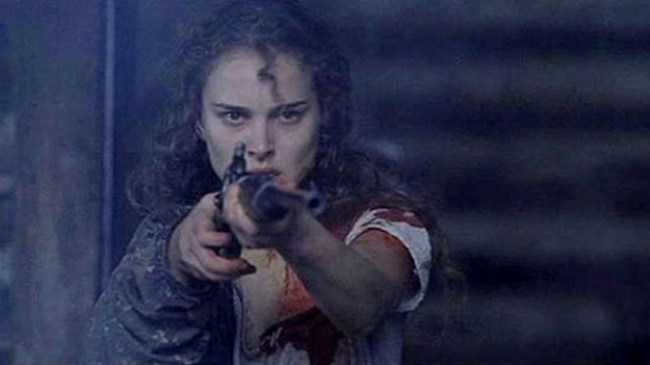
Jane Got a Gun (February 28)
Having apparently survived losing its director and chief villain Jude Law, the hits kept on coming, with the film also losing Law’s replacement Bradley Cooper, with Ewan McGregor coming on, in a reunion of sorts with heroine/co-producer Natalie Portman. However, that wasn’t enough to save the film in April from having its release date pushed back six months past the originally scheduled one of August. The month of February is not a great spot on the calendar, and one wonders if this will end up effectively being buried. The plot, in case you’d forgotten: “After her outlaw husband returns home shot with eight bullets and barely alive, Jane reluctantly reaches out to an ex-lover who she hasn’t seen in over ten years to help her defend her farm when her husband’s gang tracks him down to finish the job.”
Momentum (TBA)
During a carefully conceived heist, one of the participants, Alex (Olga Kurylenko, Kirot) witnesses of her colleagues being brutally murdered by a highly specialized international syndicate, who are in search of a key. As she attempts to escape the murder scene, she is spotted by the syndicate’s head, Mr. Washington, resulting in an ensuing chase and life or death situations as the unstoppable Alex fights for her life, as well as the lives of those at risk over this mysterious key and what it may open.
A Sexual Thriller (TBA)
Alexandra Duval (Luna Rioumina) is a beautiful, young, deadly assassin She has the training and disciplined grace of a nallerina coupled with the fortitude and lethality of a mighty warrior. She specializes in the ‘soft kill‘ – getting up close & personal with her targets – a black widow. But after she learns of a murder eerily similar to that of her fiance’s, she embarks on her quest to find those responsible for killing the love of her life.
Sicario (TBA)
Emily Blunt (shown below in Looper) stars, playing “A confident female cop [who] joins a secret CIA operation to take down a big Mexican cartel boss, a job that ends up pushing her ethical and moral values to the limit.” Other members of the cast include Benicio del Toro and Josh Brolin, and there’ll be some local interest for us here, with its Arizona setting – though the filming appears to have been in Albuquerque, New Mexico. Director Denis Villeneuve received plaudits for his earlier work, Prisoners, and I’m getting something of a No Country for Old Men vibe about this production – not just because of Brolin, but also cinematographer Roger Deakins – perhaps combined with cop TV series The Bridge [which, of course, was a remake of a Scandinavian show]

Spy (May 22)
“Susan Cooper is an unassuming, deskbound CIA analyst, and the unsung hero behind the Agency’s most dangerous missions. But when her partner falls off the grid and another top agent is compromised, she volunteers to go deep undercover to infiltrate the world of a deadly arms dealer, and prevent a global disaster. ” This will be the third collaboration between director Paul Feig and star Melissa McCarthy, with the film also starring Rose Byrne, Jason Statham, Jude Law and – a favourite of both my wife and mine – Miranda Hart. One imagines this is more likely to be heavily skewed toward the comedy aspects rather than the action, but I’ll confess to a sneaking respect for McCarthy, the only decent thing about Bridesmaids [that was one of Chris’s movies!]
Suffragette (TBA)
A September release in the UK, no American release date yet. This “tracks the story of the foot soldiers of the early feminist movement, women who were forced underground to pursue a dangerous game of cat and mouse with an increasingly brutal State. These women were not primarily from the genteel educated classes, they were working women who had seen peaceful protest achieve nothing. Radicalized and turning to violence as the only route to change, they were willing to lose everything in their fight for equality – their jobs, their homes, their children and their lives.” The star is Carey Mulligan, best known perhaps for playing the heroine in Blink, the finest episode of Doctor Who.
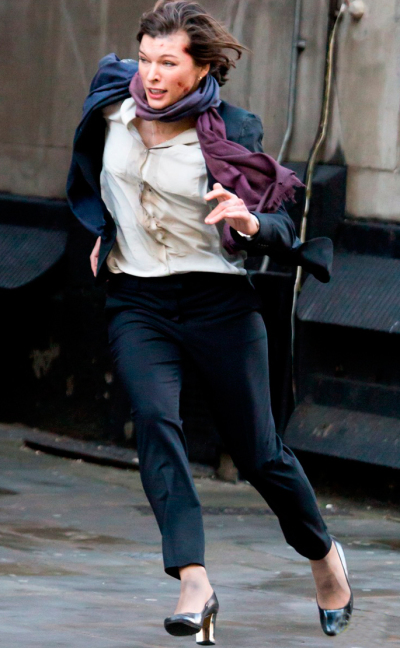 Survivor (TBA)
Survivor (TBA)
So there may be no Resident Evil, but this one might give us our Milla Jovovich fix for the year. “A State Department employee newly posted to the American embassy in London is accused of crimes she didn’t commit, and forced to go on the run while she tries to clear her name and stop a large-scale terrorist attack set for New Year’s Eve in Times Square. ” It was filmed in the first quarter of this year (apparently when they say “on the run”, they mean it for Milla, as shown on the right), and I’m not sure why it’s apparently being sat on – there’s no US release date currently, but it’s listed as September 2015 in the Netherlands. The Director is James McTeigue, who did V for Vendetta and Ninja Assassin.
Tiger House (TBA)
High concept: “An injured gymnast must defend her boyfriend’s house from a gang of armed robbers.” Slightly-lower concept: “Kelly sneaks into her boyfriend’s house but tonight, she’s not the only unwelcome visitor. Now, she must draw on her reserves of strength and skills of dexterity to escape. As the situation spirals out of control, the suburban house becomes a terrifying arena for violence. ” Tagline: “12 hours. 4 killers. 1 way out.” Second quarter release scheduled for the UK, with Kaya Scodelario as the heroine, and Dougray Scott also present.
Z for Zachariah (TBA)
Another post-apocalyptic tale based on a novel – seems to be a trend for 2015 – though this one, by Robert C. O’Brien, dates back to the seventies. It starts Margot Robbie, who will also be Harley Quinn in the upcoming Marvel film, Suicide Squad. According to Variety, “The thriller follows a small-town girl (Robbie) who lives alone on a farm in the only valley with breathable air in the wake of nuclear war. Her world is turned upside down when two strangers wander in from the forest.” Chris Pine and Chiwetel Ejiofor also star, presumably as the two strangers mentioned.
 I remember bumping into this one back in the 90’s, on VHS [kids, ask your parents!]. Stumbling across it again recently, I wondered why I had ever bothered – but then I discovered the cornucopia of lurid video sleeves used to lure unwary buyers into purchasing or renting it, and it all made much more sense. I can’t remember exactly which one was on the British video releaase, but I think it was a slight variant of #2 (below, left), over a gratuitous background of exploding fireballs. There are times when I miss those days of prowling the local video store, or market stalls, picking up cinematic “gems” based entirely on their covers. And then, I watch something like this, and remember how few of those purchases ever came anywhere close to living up to their promotional material.
I remember bumping into this one back in the 90’s, on VHS [kids, ask your parents!]. Stumbling across it again recently, I wondered why I had ever bothered – but then I discovered the cornucopia of lurid video sleeves used to lure unwary buyers into purchasing or renting it, and it all made much more sense. I can’t remember exactly which one was on the British video releaase, but I think it was a slight variant of #2 (below, left), over a gratuitous background of exploding fireballs. There are times when I miss those days of prowling the local video store, or market stalls, picking up cinematic “gems” based entirely on their covers. And then, I watch something like this, and remember how few of those purchases ever came anywhere close to living up to their promotional material.
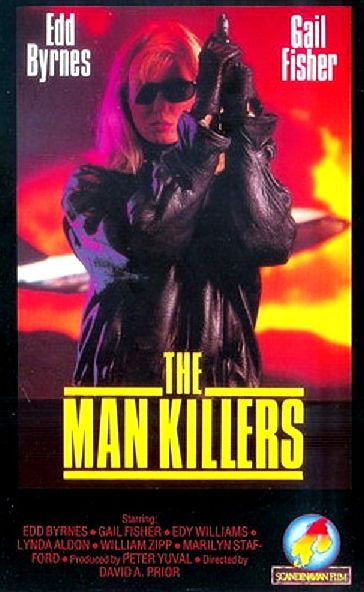






 This makes a great deal more sense when you realize it’s actually a sequel, not only to Cymek’s earlier Dark Rising, but also the TV series that followed. The US/Netflix title and blurb cunningly manage to avoid mentioning this, which certainly explains the sense that you have walked into the middle of a story. For instance, none of the characters are apparently fazed by the fact that interdimensional portals have opened, allowing all manner of icky creatures to enter this Earth’s realm from a “Dark Earth”. It’s up to the Rising Dark Agency, a Government department [apparently staffed by about six people] to keep the resulting mayhem in check. Chief among its operatives are Jason Parks (Cannon, a dead-ringer for Dolph Lundgren) and Summer Vale (Kingsley, also the director’s wife), whose combination of human and demon DNA you have probably noticed on the poster. And are perhaps still staring at.
This makes a great deal more sense when you realize it’s actually a sequel, not only to Cymek’s earlier Dark Rising, but also the TV series that followed. The US/Netflix title and blurb cunningly manage to avoid mentioning this, which certainly explains the sense that you have walked into the middle of a story. For instance, none of the characters are apparently fazed by the fact that interdimensional portals have opened, allowing all manner of icky creatures to enter this Earth’s realm from a “Dark Earth”. It’s up to the Rising Dark Agency, a Government department [apparently staffed by about six people] to keep the resulting mayhem in check. Chief among its operatives are Jason Parks (Cannon, a dead-ringer for Dolph Lundgren) and Summer Vale (Kingsley, also the director’s wife), whose combination of human and demon DNA you have probably noticed on the poster. And are perhaps still staring at.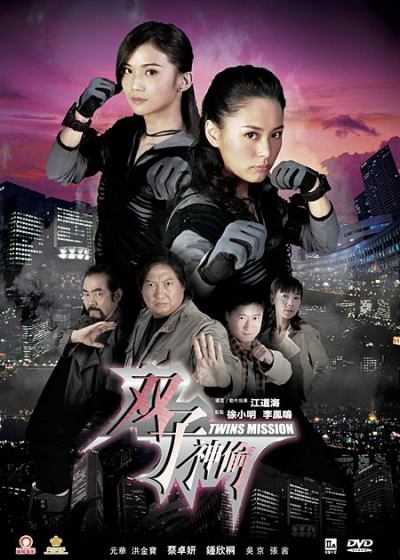 Twins Effect, the first film starring the Cantopop duo, Twins, was a frothily entertaining mix of action and humour, that was surprisingly entertaining. Its sequel? Despite a stellar supporting cast, and some great action, not so much, with a historical setting, and a balance that tilted unfavourably towards comedy. This third entry does at least return to the modern era, and also continues some impressively slick fights – and more broken glass than any other movie I can immediately think of – but has a similarly lumpy attitude, feeling almost like two films spliced together.
Twins Effect, the first film starring the Cantopop duo, Twins, was a frothily entertaining mix of action and humour, that was surprisingly entertaining. Its sequel? Despite a stellar supporting cast, and some great action, not so much, with a historical setting, and a balance that tilted unfavourably towards comedy. This third entry does at least return to the modern era, and also continues some impressively slick fights – and more broken glass than any other movie I can immediately think of – but has a similarly lumpy attitude, feeling almost like two films spliced together.
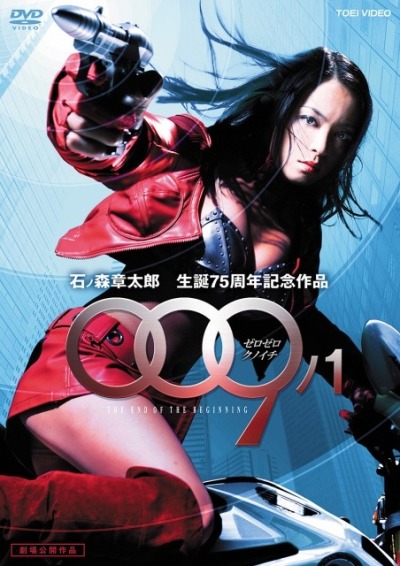 Partly to celebrate the 75th birthday of its late creator, Shotaro Ishinomori, the first live-action feature adaptation of his spy series 009-1 was made – it had previously been made into a TV show, during the late sixties, and a 12-episode anime series in 2006. This version was helmed by Sakamoto, best known for his work on the action in Kamen Rider and Power Rangers, but we’ve been a fan since his involvement in 1997’s Drive, with Mark Dacascos, whose fights still hold up very well today. And this is almost as much fun, combining bone-crunching action with more philosophical insights, into what it means to be human.
Partly to celebrate the 75th birthday of its late creator, Shotaro Ishinomori, the first live-action feature adaptation of his spy series 009-1 was made – it had previously been made into a TV show, during the late sixties, and a 12-episode anime series in 2006. This version was helmed by Sakamoto, best known for his work on the action in Kamen Rider and Power Rangers, but we’ve been a fan since his involvement in 1997’s Drive, with Mark Dacascos, whose fights still hold up very well today. And this is almost as much fun, combining bone-crunching action with more philosophical insights, into what it means to be human.
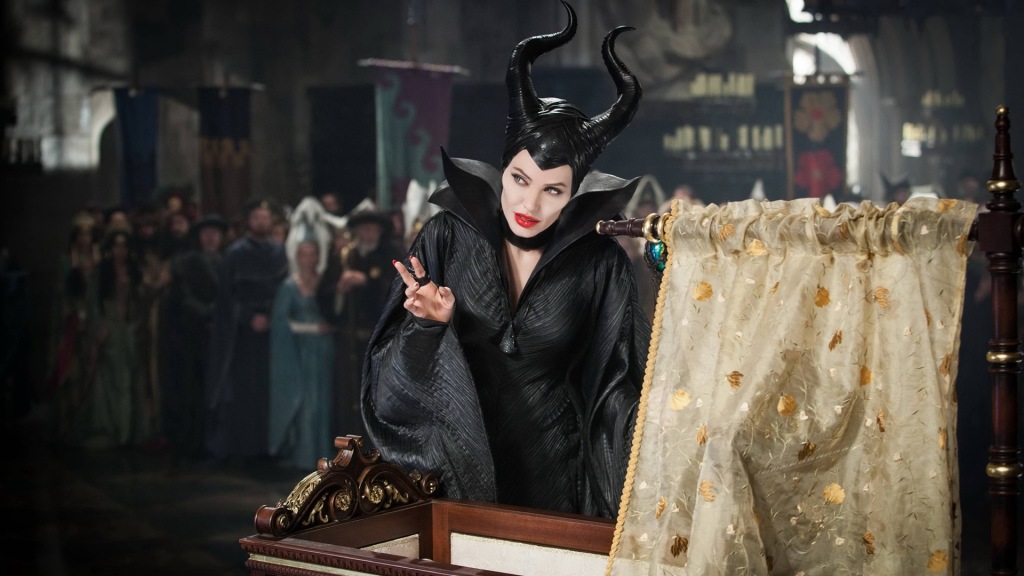 Except, there’s one very significant twist. Chris and I took a pie break an hour in, and she complained the film’s direction was “obvious.” Yes… and no. It was clearly pointing in the Prince Charming and happy ever after directions, but I’m delighted to report this is then subverted into something entirely different, and which packs a much greater emotional wallop. There was sniffling coming from beside me on the couch before the end, let’s just leave it at that. If there’s a Disney moral to be found in the (mostly awesome) ending, it’s perhaps not just the value of forgiveness over revenge, but that when someone offers you the former, it’s often wisest just to take it. Oh, and another important lesson: if you go plummeting off battlements with a creature that has wings and can fly, there’s really only going to be one loser in that scenario.
Except, there’s one very significant twist. Chris and I took a pie break an hour in, and she complained the film’s direction was “obvious.” Yes… and no. It was clearly pointing in the Prince Charming and happy ever after directions, but I’m delighted to report this is then subverted into something entirely different, and which packs a much greater emotional wallop. There was sniffling coming from beside me on the couch before the end, let’s just leave it at that. If there’s a Disney moral to be found in the (mostly awesome) ending, it’s perhaps not just the value of forgiveness over revenge, but that when someone offers you the former, it’s often wisest just to take it. Oh, and another important lesson: if you go plummeting off battlements with a creature that has wings and can fly, there’s really only going to be one loser in that scenario.

















 Barely Lethal (TBA)
Barely Lethal (TBA)

 Survivor (TBA)
Survivor (TBA) And Frankenstein Created Woman? That might have been an alternate title, with German scientist Dr. Serafin (Jurgens) in the role of the creator – he’s a man with a dubious past, and whispers of involvement in Nazi experimentation. Now “rehabilitated” to the US, in what may be a medical version of Operation Paper Clip, he uses an unholy mix of pharmaceuticals and extreme training methods to convert his own daughter, Goldine, into a 6’2″ athletic superwoman, with the aim of completing an unheard of triple crown at the upcoming Moscow Olympics, winning the 100, 200 and 400 metre gold medals. To fund this work, he brings in a consortium of businessmen who aim to capitalize on Goldine’s success with advertising, merchandising, etc. Brought in to advise them, as Goldine is prepared for her first public events, is agent Jack Dryden (Coburn), who gradually realizes the one person not wholeheartedly committed to the entire proceedings, is the runner herself.
And Frankenstein Created Woman? That might have been an alternate title, with German scientist Dr. Serafin (Jurgens) in the role of the creator – he’s a man with a dubious past, and whispers of involvement in Nazi experimentation. Now “rehabilitated” to the US, in what may be a medical version of Operation Paper Clip, he uses an unholy mix of pharmaceuticals and extreme training methods to convert his own daughter, Goldine, into a 6’2″ athletic superwoman, with the aim of completing an unheard of triple crown at the upcoming Moscow Olympics, winning the 100, 200 and 400 metre gold medals. To fund this work, he brings in a consortium of businessmen who aim to capitalize on Goldine’s success with advertising, merchandising, etc. Brought in to advise them, as Goldine is prepared for her first public events, is agent Jack Dryden (Coburn), who gradually realizes the one person not wholeheartedly committed to the entire proceedings, is the runner herself. This review is more in the nature of a warning than a critique, since it would be easy for someone to look at the cover (right) and think that this might be a movie about – oh, I dunno, boxing? It seems a reasonable expectation, given the following synopsis:
This review is more in the nature of a warning than a critique, since it would be easy for someone to look at the cover (right) and think that this might be a movie about – oh, I dunno, boxing? It seems a reasonable expectation, given the following synopsis: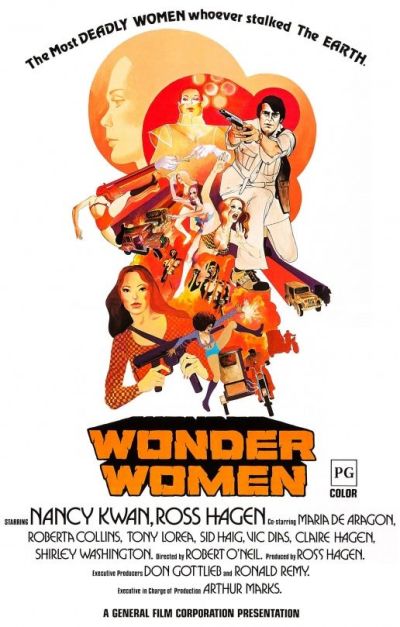 Roger Corman’s New World Pictures weren’t the only ones using the Philippines as a factory to churn out B-movies in the seventies, as this 1973 entry, from Arthur Marks’ General Film Corproration shows. Dr. Tsu (Kwan) and her posse of henchwomen are kidnapping athletes, the not-so-good doctor having perfected the ability to do brain transplants. She’s now selling this as a service to rich, old people, who can become young again. However, after kidnapping a jai-alai star, the insurance company on the hook for the half million dollar policy hires Mike Harber (Hagen) to investigate. As he starts nosing around and making waves, first the local gangster boss, then Dr. Tsu, send their minions out to stop him. Needless to say, this is of limited success, and he is soon on his way to the remote island where Tsu operates, to take down her operation.
Roger Corman’s New World Pictures weren’t the only ones using the Philippines as a factory to churn out B-movies in the seventies, as this 1973 entry, from Arthur Marks’ General Film Corproration shows. Dr. Tsu (Kwan) and her posse of henchwomen are kidnapping athletes, the not-so-good doctor having perfected the ability to do brain transplants. She’s now selling this as a service to rich, old people, who can become young again. However, after kidnapping a jai-alai star, the insurance company on the hook for the half million dollar policy hires Mike Harber (Hagen) to investigate. As he starts nosing around and making waves, first the local gangster boss, then Dr. Tsu, send their minions out to stop him. Needless to say, this is of limited success, and he is soon on his way to the remote island where Tsu operates, to take down her operation.